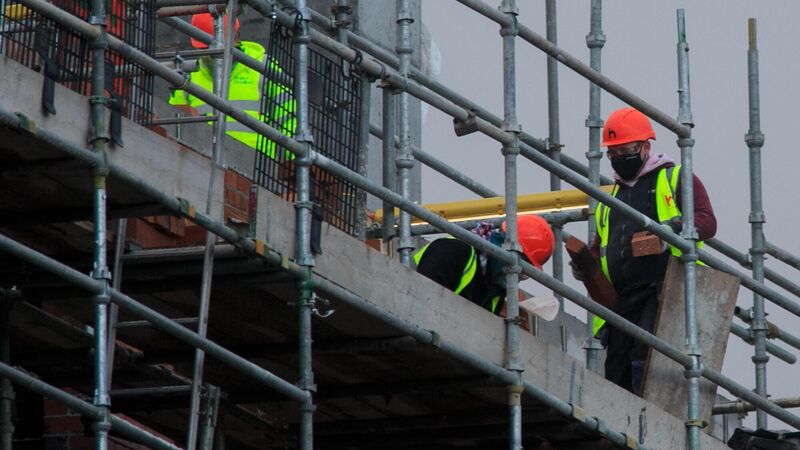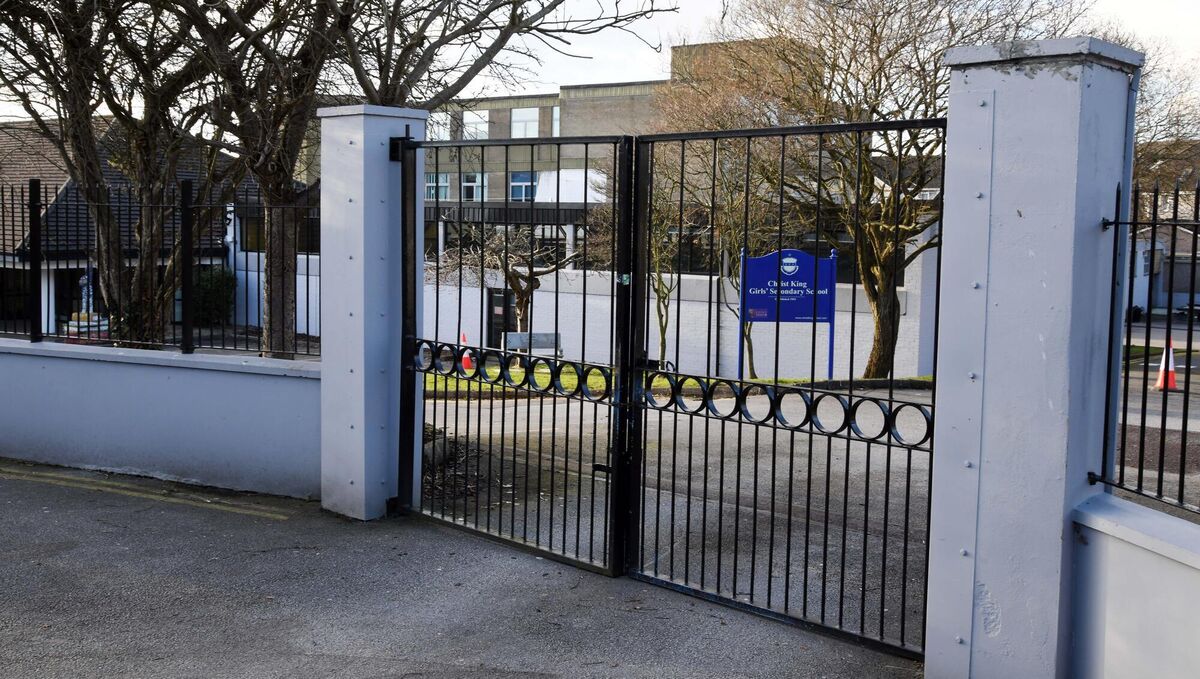Cabinet to sign new Covid restrictions on schools, construction, retail and travel

Certain construction deemed essential or critcial will be allowed to continue. Picture:Gareth Chaney/Collins
Schools and constructions sites are set to close until the end of the month under new restrictions due to be signed off on by Government on Wednesday.
Click and collect shopping will also be banned, but non-essential retailers will be allowed to continue with online shopping where items are delivered.
All passengers arriving into the country will be asked to show a negative Covid test with the requirement being introduced for people coming from the UK and South Africa from this weekend.
Government leaders, the HSE and Nphet met for over five hours to discuss a range new restrictions which will see the country return to the an almost identical lockdown as in March.
In a bid to tackle the mobility of the virus, the Government is to keep children out of classrooms until January 30.

However, Education Minister Norma Foley hopes to keep the country's 124 special education schools and 1,836 special classes in mainstream schools open.
She was still working on the finer details of this on Tuesday ahead of Wednesday's crunch Cabinet meeting.
It is understood that allowing Leaving Cert students to attend school was considered but this was dismissed as it would mean around 60,000 pupils would still be mixing.
The Government is determined to protect the Leaving Certificate exam and ensure it goes ahead.
"There is a real determination that the Leaving Cert will happen so that we are not looking at the predicted grades of last year," a Government source said.
The final details of the latest restrictions will be signed off on by Cabinet Wednesday, however, the Government's Covid sub-committee agreed that the Early Childhood Care and Education (ECCE) Scheme will be halted until the end of the month.
Creches will be permitted to stay open, but they will be asked to only cater for the children of essential workers.
Children's Minister Roderic O'Gorman will clarify the specific list of people who are now deemed essential workers under the new restrictions.
Construction sites will also close under the new stricter measures, however, essential and critical projects may continue.
It is understood that this would include a percentage of social housing, health and other projects that are deemed critical as well as necessary refurbishments.
The construction of school buildings and essential water services will also be allowed to continue.
Non-essential retailers will be told to stop click and collect services, but will be allowed to operate click and deliver services.
Meanwhile, new regulations for those entering the country will come into force for people travelling to Ireland from the UK and South Africa from this weekend, but will then be extended to all passengers soon after.
Cabinet is expected to sign off on a range of new measures tomorrow in a bid to curb the rapid spread of the virus including the extension of the travel ban from Britain and South Africa until Friday midnight.
After this time all people entering the country from these regions will be required to show that they have received a negative PCR test in the past 72 hours.
They will be asked to produce the results of this Covid-19 test when landing at airports or entering Irish ports.
The travel ban had been due to expire tomorrow evening and was originally brought in a bid to stop or slow down the spread of new strains in both the UK and South Africa.
New regulations for education and retail come as 5,325 new cases of Covid-19 were confirmed by the Department of Health.
The total number of cases confirmed in the country since the outbreak of the pandemic first began has reached 113,322.
Rising cases amidst the third wave of the virus has led to increased hospitalisations warned Dr Holohan, Chief Medical Officer (CMO) from the Department of Health.
The CMO said these surging hospitalisations are placing increased stress on the health system and that everyone needs to stop the spread of infection.
“We are now experiencing a considerable surge in cases and hospitalisations. We can turn this around quickly if we stick to the measures we know worked last spring,” said Dr Holohan.





